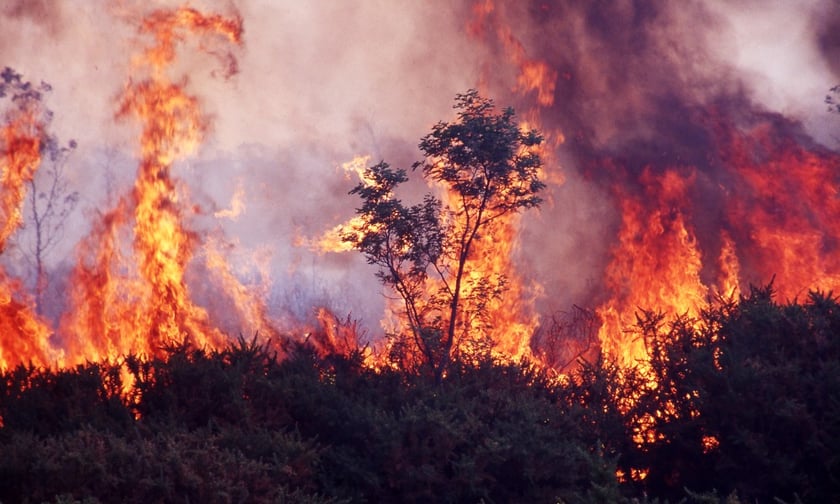

A House committee overwhelmingly approved legislation Thursday that would launch a federal study of wildfire insurance coverage.
The House Financial Services Committee, in a 47-2 vote, advanced to the House floor a bill that would require the Government Accountability Office to assess wildfire risk; analyze the impact of wildfires on homeowner and commercial property policies – including premium increases and coverage cutbacks; survey state regulators’ responses; and outline challenges related to underwriting wildfire risk.
The committee delayed a vote scheduled on legislation that would place some restrictions on the Federal Insurance Office’s ability to gather data from insurers. The bill was one of several that was lopped off the agenda so that lawmakers would have time to get to the House floor to vote on a government-funding measure to avoid a partial shutdown.
The Wildfire Insurance Coverage Study Act was written by Rep. Maxine Waters, D-Calif. and ranking member of the committee. Her state is one that has been rocked by natural disasters over the last several years. She said that when insurers sharply raise premiums or stop offering wildfire coverage in certain communities, it can make homes unaffordable and hinder recovery efforts.
Waters acknowledged that insurance is regulated primarily at the state level, but said there is precedent for the federal government to step in when there is a “private market failure,” as it did with the national flood insurance program.
“In the case of wildfire insurance coverage, we’re at a critical juncture where we need to better understand insurer challenges as well as how to prepare and protect families and homes in our economy against this growing risk,” Waters said during the committee’s deliberations.
The wildfire phenomenon is occurring in a number of states, including a devastating outbreak in Texas this week. The breadth of the problem also encompasses both sides of the political aisle.
Rep. Patrick McHenry, R-N.C. and committee chair, said the physical and economic damage wrought by wildfires should move discussion about the issue beyond political clashes over climate change. He noted that wildfires destroyed 10 million acres and caused $16 billion in damage in 2020.
“Climate change and the changing nature of our weather patterns is evident to those that underwrite insurance,” McHenry said.
“It is not about the political debate on climate change. It is about what the insurers are seeing in real losses [and] homeowners are experiencing in rising insurance rates. The data indicates that we have more expensive weather patterns that are [costing] real people, real dollars.”
It’s not clear when or whether the wildfire study bill will be voted on by the full House.
The bill that was taken off Thursday’s committee agenda – the Insurance Data Protection Act—would prevent the Federal Insurance Office and the Office of Financial Research from using a subpoena to obtain information directly from an insurer or one of its affiliates. It also would require that the FIO coordinate in advance with state insurance regulators before collecting data from insurers and would establish protections to maintain its confidentiality.
The bill is likely to receive a committee vote in the coming weeks. It has the backing of insurance industry trade associations.
“It would be helpful to have the clarifications and guardrails that distinguish between the state insurance regulators’ authority and FIO,” said Keri Kish, general counsel and policy director at the Wholesale and Specialty Insurance Association. “It wasn’t taken off [the committee agenda] because there’s a problem. It was all about timing today.”
Maintaining lines of demarcation between the FIO and states is also important to the American Property and Casualty Insurance Association.
“APCIA has long held the position that FIO should work with the states to obtain the data needed to fulfill its mission,” Nat Wienecke, APCIA’s senior vice president of federal government relations, said in a statement.
The Independent Insurance Agents and Brokers of America stressed that its members are shielded from the FIO.
“It’s important to note that while FIO has the ability to collect information from insurers and may require production of information by subpoena from insurers if certain conditions are met, they do not have the ability to collect or demand the production of information from independent insurance agencies,” Nathan Riedel, senior vice president for federal government affairs at the Big ‘I’, said in a statement.
The FIO did not respond to a request for comment about the bill.
